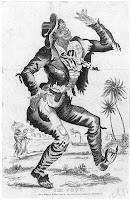Before the Great Depression, the south was already disadvantaged as it attempted to recover from the Civil War. The south was economically behind on income, education, and jobs. The depression only made things worse. Even before the economic downturn of the early 1930’s the southern worker earned less than half the wages of any other American worker and constantly faced underemployment or unemployment. Forty-two percent of those in the south worked on farms as hired hands, tenants, or sharecroppers.
 In the south, sharecropping was a common job. Those who did not own land would negotiate a contract with a landowner who would then share the land for farming, wages, and supplies. As the Depression worsened, finding and holding a job became increasingly difficult. Most southern cities saw unemployment rates near or beyond the thirtieth percentile (Bindas, 2007). During the Great Depression, cotton prices plunged from eighteen to six cents a pound. Hundreds of thousands of sharecroppers left the land for the cities, leaving behind abandoned fields and homes. Jobs held by blacks, such as busboys, elevator operators, garbage men, porters, maids, and cooks were sought by desperate unemployed whites (The Rise and Fall, 2002).
In the south, sharecropping was a common job. Those who did not own land would negotiate a contract with a landowner who would then share the land for farming, wages, and supplies. As the Depression worsened, finding and holding a job became increasingly difficult. Most southern cities saw unemployment rates near or beyond the thirtieth percentile (Bindas, 2007). During the Great Depression, cotton prices plunged from eighteen to six cents a pound. Hundreds of thousands of sharecroppers left the land for the cities, leaving behind abandoned fields and homes. Jobs held by blacks, such as busboys, elevator operators, garbage men, porters, maids, and cooks were sought by desperate unemployed whites (The Rise and Fall, 2002).Slavery ended as a result of the Civil War, however, most southern states tried to limit the economic and physical freedom of the formerly enslaved by adopting laws known as Black Codes.
 These Black Codes, became know as the Jim Crow laws. The term Jim Crow originated during the 1830’s in a song performed by Daddy Rice, a white minstrel show entertainer. Rice covered his face with charcoal to resemble a black man, then sang and danced a routine in caricature of a silly black person. How it became a term associated with the brutal segregation of blacks is unclear. The term generally identified with racist laws and actions that deprived blacks of their civil rights by defining blacks as inferior to whites (Davis, n.d. ).
These Black Codes, became know as the Jim Crow laws. The term Jim Crow originated during the 1830’s in a song performed by Daddy Rice, a white minstrel show entertainer. Rice covered his face with charcoal to resemble a black man, then sang and danced a routine in caricature of a silly black person. How it became a term associated with the brutal segregation of blacks is unclear. The term generally identified with racist laws and actions that deprived blacks of their civil rights by defining blacks as inferior to whites (Davis, n.d. ).Some southern states moved to legally impose segregation on public transportation, other public places, and schools. They also banned interracial marriages, and created voter registration restrictions. By 1910, every state of the former Confederacy had adopted laws that segregated all aspects of life wherein blacks and whites might socially mingle or come into contact (Davis n.d.).
Throughout most of Theodore Roosevelt’s first term, neither the president nor the Congress paid much attention to the suffering of blacks. The President did not want to antagonize the Southern Senators who controlled the Senate and who could block his efforts to end the Depression. Later, Mrs. Roosevelt became aware of the injustices suffered by blacks and she then began to speak out publicly on their behalf against race and prejudice. The United States Supreme Court began to hand down decisions favoring black challenges to segregation. Black civil rights organizations began to increase the activity and demands for their rights as citizens (The Rise and Fall, 2002).
Overall, the situation in the south during the Great Depression could be viewed as more severe due to the continued recovery from the Civil War, segregation efforts, and the over-dependence on agriculture as an economic driver. Greater economic diversification and de-segregation helped the south recover following the Great Depression just as the lack of both aided in its suffering during the Great Depression.
References
Bindas, K.J. (2007). Remembering the great depression in the rural south. Florida: University
Press of Florida.
Davis, R. (n.d.). From terror to triumph: Historical overview. Retrieved from
http://www.jimcrowhistory.org/history/overview/htm
Jim Crow. (n.d.). Retrieved from http://www.loc.gov/pictures/item/2004669584
Russell, L. (1938). Sharecropper family on front porch of cabin, Southeast Missouri Farms.
Retrieved from http://www.loc.gov/pictures/item/fsa1997023079/PP
The rise and fall of Jim Crow. Jim Crow stories. The great depression. Retrieved from
http://www.pbs.org/wnet/jimcrow/stories_events_depression.html
No comments:
Post a Comment